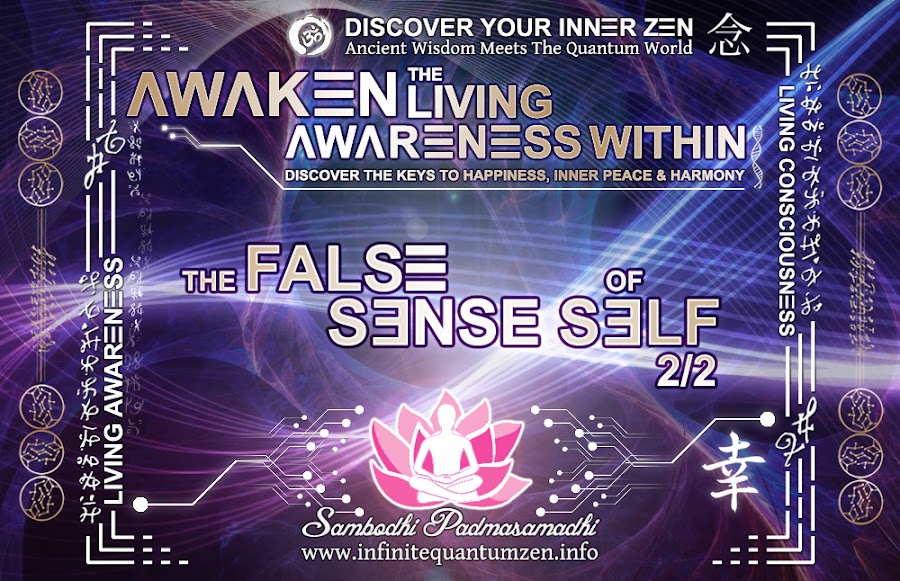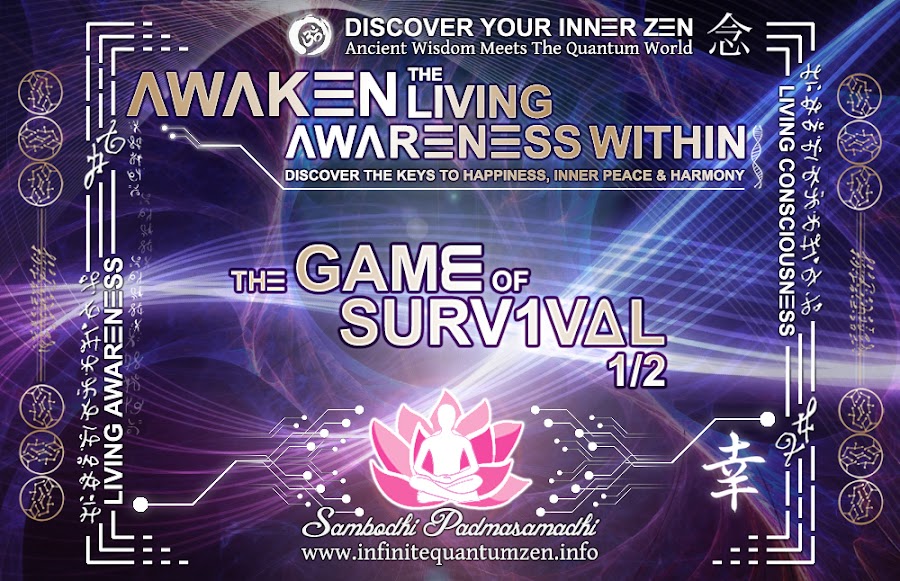 |
| ~ ∞ ~ The Preciousness of Human Life 1/2 - Awaken the Living Awareness Within ~ ∞ ~ |
Now that we’ve had discussions on many wide-ranging topics with regard to human beings, it is time to reflect on the preciousness of human life. In this chapter, we will see how closely the miracle of life and the preciousness of human life are connected and linked together. As an opening remark, it is worth noting that not everyone is able to see that human life is precious, not everyone has the capacity to think about and reflect upon such things.
It follows, naturally, then, that not everyone has the appreciation for the deeper aspects of the human experience; such appreciation that some curious individuals who are initiated to the mysteries of life would have; such appreciation that some individuals who are involved in with understanding of the same would have. It is, of course, possible to awaken such curiosity within, and with it, the appreciation for the deeper aspects of the human experience, for the miracle of life and the preciousness of human life, you see?
That said, a good way to start the discussion about this topic would probably be through something that evokes a sense of awe and wonder, if not sheer mystery and marvel, don’t you think? As we have learned from the previous chapters, the probability of life existing at all is infinitesimal – the odds against the existence of life on Earth are said to be on the order of 10^10^123 – a figure so large that one could not possibly even write the number down. And yet, amidst all the odds against – here we are.
This gives us some perspective with regard to the rarity of intelligent life in the universe. And not only that, but it also gives us the perspective needed to see the preciousness of human life with more clarity. The creation of our fine-tuned universe and intelligent life in it – the two unfathomably rare, if not mystical occurrences, makes it clear that the universe we find ourselves in – has a purpose: to facilitate intelligent life, which makes it a purposeful universe, does it not?
Wouldn’t this then suggest that also human beings have a purpose? If we really think about it, wouldn’t the improbable odds of life existing in the cosmos suggest that everything that exists is a result of a miracle?
By now, at this point in the book, it must have become obviously clear that everything that exists is indeed a result of a miracle. Does it not, indeed, require a miracle to have living beings come out of non-living matter? But how can something come out of nothing, how can living beings come out of non-living matter, and how can intelligence, unparalleled to anything else we have come across – intelligence found in nature, emerge from nothing?
Well, it can’t – not without a miracle, you see? Does it not, indeed, require the involvement of a Higher Power to initiate, cause, and bring forth such a miracle? In this sense, life is a mystery, one that may not be resolvable by means available to us, that is, by usual, traditional means of logic and reason as we know and practice them today, including, but not limited to, astronomy, mathematics, physics, biology, chemistry, and ontology.
By virtue of the aforementioned with regard to the mystery of life, it is worth highlighting the following truth: if one wishes to get a glimpse of this mystery, one would need to aspire to go beyond the thinking mind, to go beyond traditional means of logic and reason; one would need to use their faculty of intelligence to its fullest – to unleash its full potential to cover such aspects as intuition and inner knowing.
In so doing, one becomes dissolved in something far more powerful – becoming part of something much greater, beyond ourselves; and in this becoming, one is able to pierce the veil between ordinary life and the mysterious regions of the Soul – into greater Innerstanding, wherein the transcendent nature of Life is experienced.
This transcendent part of life can only be experienced through one’s innermost being – it is here – within, where the preciousness of human life crystallizes; it is here – within, where understanding, overstanding, and Innerstanding meet to form a clear, powerful, alive, and vibrant comprehension. And so you see, the answers lie beyond the limits of the known, and the truth lies beyond the narrow limits of conditioned perception.
If we move beyond our preconceptions, transcend beyond limiting beliefs, ideas and concepts that has been handed down to us from previous generations, if we go above cause and beyond effect, above birth and beyond death, above happiness and beyond suffering – we discover what lies beyond the limits of the known. Therein, can we find true knowledge and wisdom, memory and information, universal love, peace and serenity that connects us all; therein, beyond the limits of the known, the mystery reveals itself to those who seek it – see?
Furthermore, if one wishes to get a glimpse of what this mystery entails, it requires one to appreciate paradox; accommodating different viewpoints within a broader perspective; seeing the opposites as complementary rather than contradictory – they are, after all, equally important parts of the whole.
You see, wisdom and understanding lies in paradox – even if something contradicts itself, it can still be true; some would call this ‘coincidentia oppositorum,’ or just simply Unity of Opposites. A thing is both what it is and what it is not, and yet it somehow escapes contradiction – that’s how the Miracle of Life is possible, that’s how something can come out of nothing, and living beings come out of non-living matter – see?
While one marvels at the extraordinary nature of life, we cannot but conclude that life is, truly, a Living Miracle – something to be cherished and nurtured; to be alive is the greatest gift of all, is it not? Indeed, each of us is a living testament of the miracle called life. Is it not, indeed, a miracle that you exist? Is it not a miracle that you exist as the unique you that you are? Is it not a miracle that you were born as a human instead of, let’s say, an insect, or a jellyfish, a frog, or a bird?
Is it not a miracle that you were born with a capacity for intelligence incomparable to any other life forms we are aware of? Is it not a miracle that Intelligent Life can evolve to a level of consciousness, to a point where it can trace back its history to understand its own origin and its true essence? Is it not a miracle that Life can become aware of itself through the vehicle of a living form that has the capacity for self-reflection?
You see, as far as we know, human beings are the only form of life that has this capacity of being able to reflect on the nature of its own thinking and feeling, its own past and future, its own life and death, on the nature of consciousness, and on the nature of awareness itself, which makes self-reflection possible.
___
~ ॐ ~ Sambodhi Padmasamadhi ~ ∞ ~
Get the Book: Awaken the Living Awareness Within – Discover the Keys to Happiness, Inner Peace & Harmony
~ ॐ ~ Sambodhi Padmasamadhi ~ ∞ ~
Get the Book: Awaken the Living Awareness Within – Discover the Keys to Happiness, Inner Peace & Harmony
[ Click » here « to read the next part: The Preciousness of Human Life 2/2 ]















